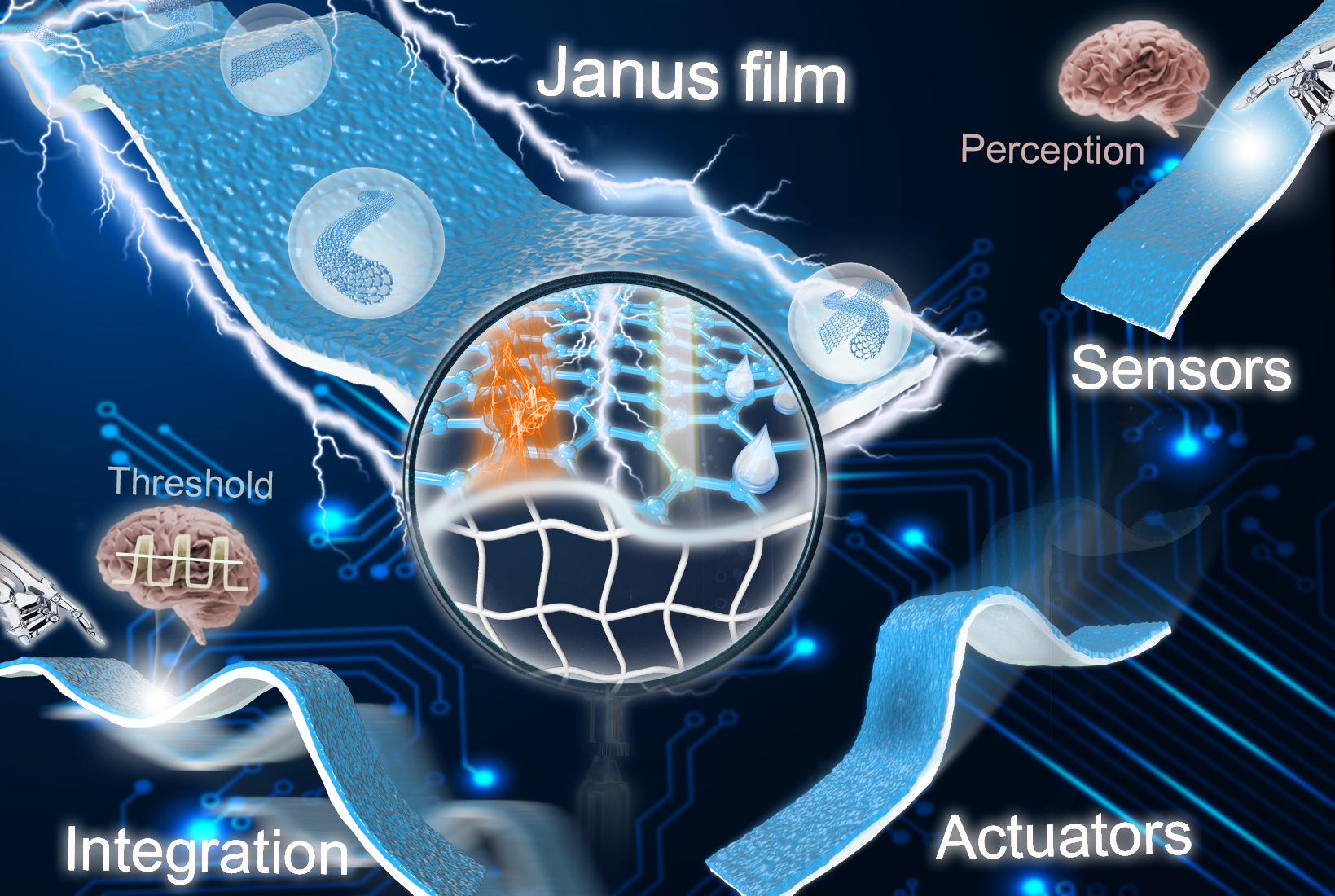The unique physical/chemical properties and synergetic multifunctions have given Janus films great potentials in sensing, actuation, advanced separation, energy conversion and storage, etc. Combining the unique advantages of carbon nanomaterials in electrical conductivity, intrinsic mechanical flexibility, chemical and thermal stability, and ease of assembly, carbon-based Janus films have attracted increasing attention from researchers.
Based on the previously reported studies on carbon-based Janus films, Prof. CHEN Tao and his colleagues at the Ningbo Institute of Materials Technology and Engineering (NIMTE) of the Chinese Academy of Sciences (CAS) have systematically summarized the significant advances in carbon-based Janus films, focusing on the preparation strategy, the relationship between structure and performance, and the diverse potential applications in sensing, actuation, and integrated devices.
In the review published in Accounts of Materials Research, the researchers presented several representative carbon nanomaterials used in flexible sensing/actuating devices, and elucidated their intrinsic structures and physical/chemical properties, providing valuable guidance for material selection according to the desired properties and application scenarios.
In addition, great emphasis has been placed on the overall preparation strategy, including solid-supported physical/chemical approaches, and interfacial engineering techniques based on liquid support.
Besides, the relationship between the surface/interface structures and the intrinsic properties of the carbon-based Janus films was elaborated in detail.
Moreover, diverse applications of carbon-based Janus films in electronic skins (e-skins), soft actuation, and self-sensing actuating systems were demonstrated, contributing to the development of high-performance epidermal electronics, non-contact sensing devices, light-driven actuators, self-sensing actuators, and their integration for smart robots.
The current development challenges and future trends of carbon-based Janus films were also illustrated, in terms of the structural design, structural interfaces, and integrated functionality.
It is expected that this review will shed light on the further research on carbon-based Janus films, and attract interests of researchers from different backgrounds, thus creating new opportunities.
The work was supported by the National Natural Science Foundation of China, the National Key Research and Development Program of China, the Sino-German Mobility Program, etc.







